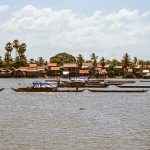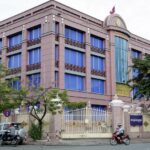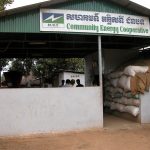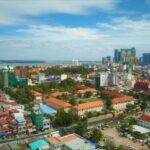Water resources

Geographically, Cambodia is rich in rivers and water bodies. These water resources play an important role in economic and social development, particularly in agriculture, industry, environmental protection and tourism sectors. ...
Water policy and administration

In Cambodia, alternate periods of drought and heavy rains bring challenges for water management. The current trends show increasing annual rainfall and temperature throughout Cambodia, with a likelihood that both flooding and droughts will increase in frequency, severity and duration1. Water management involves issues of ...
National Bank of Cambodia

The National Bank of Cambodia (NBC) was established through the Law on the organization and conduct of the National Bank of Cambodia in 1996.30 NBC is the nation’s central bank, whose mission is to determine and direct the monetary policy in order to maintain price ...
Electricity infrastructure

Rural energy cooperative in Cambodia. Photo by Nomade Moderne, taken on 23 March 2006. Licensed under CC BY-NC-ND 2.0The electricity distributed in Cambodia is partly generated within the country and partly imported. For many years, local generation was on a relatively small scale, and was ...
Investment policy and regulations

Cambodia’s economy has experienced an impressive performance, reflected in its rapid economic growth and significant poverty reduction. Part of this is the result of the relative openness of Cambodia towards foreign investors. Domestic investment has also been growing, although at a lower rate than other ...
Science and technology education and promotion

Cambodia recognizes the important role of science and technology in the 21st century and aims to transform and integrate technology into its human resources through the education sector. Various policies and strategies are implemented to achieve the goal such as Policy guidelines for New Generation ...



